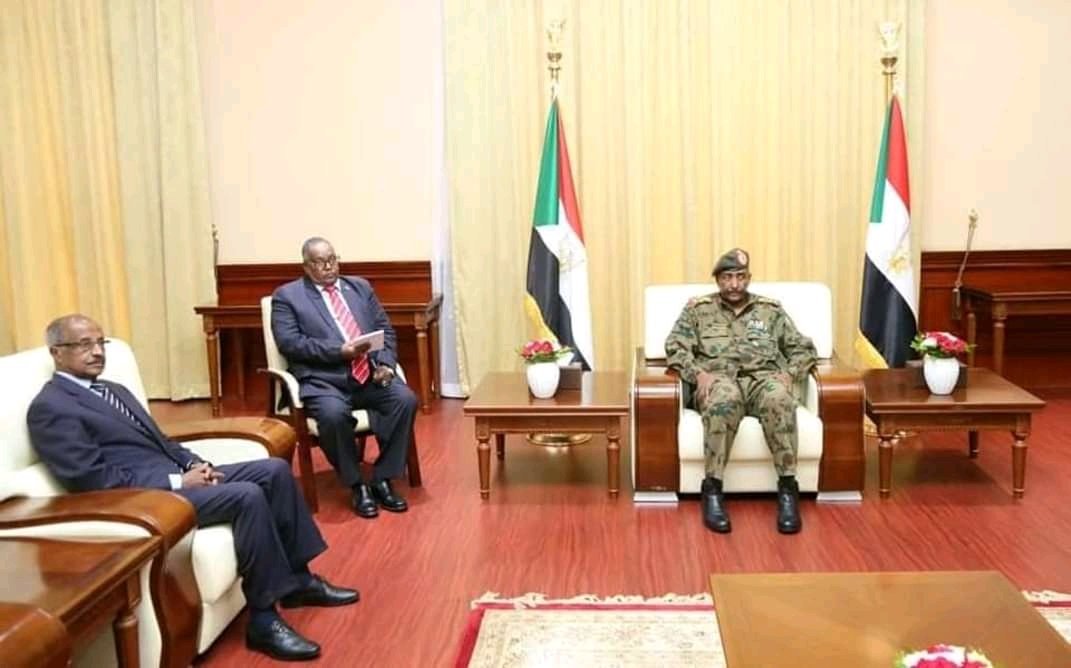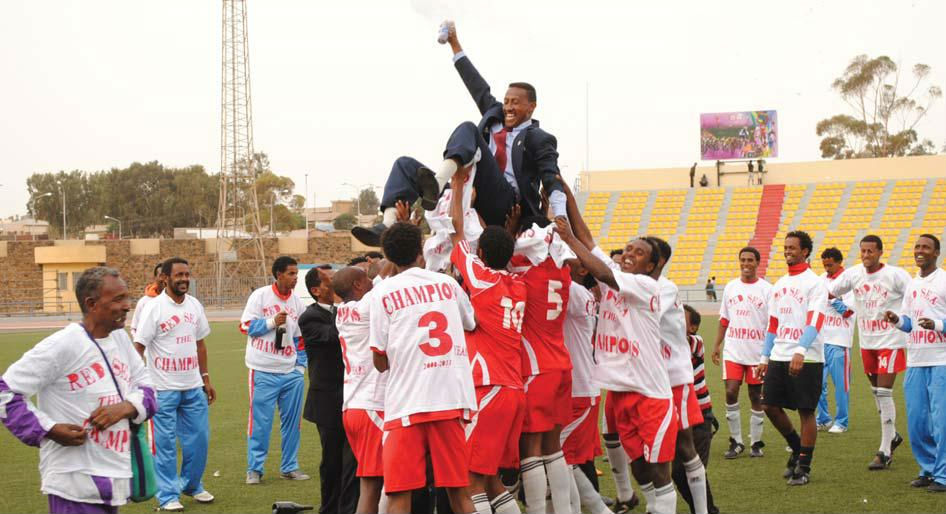Keynote Address by President Isaias Afwerki, 28th Independence Anniversary Asmara, 24 May 2019.
Dear Participant and Guests
Ladies and Gentlemen,
Let me first convey my heartfelt congratulations to the Eritrean people inside the country and in the Diaspora. I also wish to express our gratitude to all those who stood on the side of the Eritrean people, on the side of truth and justice, for their invaluable solidarity. My thanks to the Commission of Culture and Sports and all compatriots and foreign institutions for their endeavours to imbue commensurate magnificence to this auspicious occasion.
Ladies and Gentlemen,
The theme of the 2019 Independence Anniversary is “Resilience for Higher Progress”! Because this is a historical juncture in which the extraordinary resilience of the Eritrean people has been elevated and emerged triumphant once again.
The Eritrean people deserved to be independent, like other colonized peoples and even more so, in the immediate aftermath of the end of the Second World War. But their inalienable national right was suppressed as the great powers of the time felt that “an independent Eritrea would not serve their strategic interests”.
For fifty years, the people of Eritrea had to overcome political subterfuges aimed at creating divisions and cleavages amongst them; challenge and triumph over annexation and occupation; and, conduct a thirty-year long armed struggle with unparalleled heroism and sacrifice to achieve independence on the basis of the supremacy of the rule of law.
In those fifty years, the Eritrean people confronted and vanquished the machinations of their external enemies. They also secured their independence and sovereignty by combating internal divisive and toxic political tendencies, including a painful internecine war; by constantly strengthening their political cohesion.
To highlight a few of the principal values that underpin our resilience: Not to succumb and yield to force and intimidation!.... Not to cede to illicit and duplicitous machinations! Not to compromise one’s dignity and values for cheap rewards and inducements! Not to be distressed under extreme duress! Not to be disheartened by overwhelming challenges! Not to tire with hard work! Not to spare one’s toil and blood, including one’s life!... Not to relent until objectives are achieved!
These firm convictions go beyond sheer beliefs and pledges. They have been repeatedly demonstrated and have become the defining characteristics of the Eritrean people’s heritage.
How about in the last 28 years of independence and sovereignty?
As the Eritrean people embarked on the reconstruction and rehabilitation of their nation liberated through heavy sacrifices, they faced relentless hostilities designed to subdue, weaken and hold them hostage.
To this end, senseless border disputes were concocted! Unwarranted sanctions imposed! Naked military attacks launched! Political ruses, economic subversion, human trafficking as well as psychological warfare and demonization aimed at isolating Eritrea were perpetrated. One can say: “thwarting all these wrongs would have been unimaginable without the resilience of the Eritrean people”!
Ladies and Gentlemen,
And today?
Our considered approach - when it was deemed that “all past machinations” have ceased and until the illicit sanctions were lifted - was based on recognition of the unfolding events and realities “as the beginnings of a new era”. Naturally, these are times of jubilation, lofty aspirations and euphoria! But these momentous events should not prompt us to underestimate the challenges the new era brings.
Before prematurely charting out new and permanent sustainable development programmes, it is imperative that we conduct extensive political, economic and security appraisals so as to properly diagnose the unfolding realities with requisite depth. We cannot make hasty and emotional conclusions before we collect adequate information, analyze these data comprehensively with patience so as to have a clear picture. Hence, our focus should be geared towards patient appraisal of the unfolding reality. Our tasks and priorities today as well as for the near future should be to guarantee a conducive climate and basis for the new era. This precept emanates from our values that have crystallized over time.
In this new era and without departing from the fundamental principles of nation-building, our cardinal objectives consist of creating and augmenting national wealth through hard work and efficient productivity, and, ensuring equitable distribution of resources and opportunities. Our principal aim is to transform the primordial subsistence economy to a modern and developed industrial economy to bring sustainable change in the quality of life to vast segments of the population; especially those deprived in the past.
In order to pursue our nation building endeavours with a steady pace by marshalling our resources, and to capitalize on the momentum for greater rapid growth, we need to rigorously review fundamental programmes that will buttress real economic growth through higher productivity and increased output. These development programmes can be distilled as follows:
o Water infrastructure and distribution: To further refine our programmes of water supply for household, agriculture, and industrial consumption with the utilization of modern technology and associated means.
o Road, rail, cableway and oil pipelines: The three phases of i) renovation of existing systems; ii) expansion to ensure higher efficiency; and iii) implementation of new schemes that we have been pursuing in all these categories should be pursued with greater efficiency and expeditious scale of implementation.
o Ports and coastlines: To revive projects that were obstructed and interrupted, with upgraded plans and implement them within a wide framework of cooperation and partnership.
o Power generation and electricity supply: To replace the old and unreliable power generation system with a functional grid in the interim period and focus on the design and implementation of an expansive system that will adequately meet all long-term needs and requirements.
o Efficient and effective modern domestic road; rail, sea and air transport: To link these systems with regional networks within a revised plan.
o Housing: To implement - with revised plans, better technology and efficiency - various housing projects that have not been successful so far as provision of housing remains one of the fundamental yardsticks for measuring the quality of life.
o Health and Education Services: To modernize the health infrastructure to address wider category of health needs and services; to prioritize effective and all-rounded investment in education in order to improve access at all levels and thereby bolster our human capital which is critical for development and nation-building.
o Industrial sector: To undertake comprehensive review – of each programme and each enterprise - in order to formulate and implement a refined investment road-map.
o Implementation: To polish existing implementation mechanism in all the Development Fronts for higher effectiveness and to especially expedite the review of programmes and modalities underway to match the decisive contributions of our citizens in the Diaspora.
o Ensuring efficiency and effectiveness: to strengthen the relentless fight against corruption and speculation.
o Regional partnership and stability: to actively create a conducive regional climate for mutual respect and genuine partnership that enhance domestic development programmes.
Ladies and Gentlemen,
The above listed programmes are not new. Comprehensive revision of the detailed programmes and implementing them within the framework of the new era cannot be accomplished through simplistic solutions and short-cuts. They will depend, as always, on the full participation of our people and their relentless toil and resilience. This will not be difficult as the inherent values and traditions of resilience – encapsulated in the mantra of “Resilience through Resilience” – is intact as ever.
As it has been the case throughout our history, and more so in this present era, there are those who are exemplary in their selfless dedication; who give their all without any reward; and, who give us moral gratification. I avail of this occasion to express our profound gratitude to all these exceptional people, who work the most and hardest, and to members and leaders of our Defense Forces”.
Resilience for Higher Progress!
Our Progress will continue with good rains!
And above all, Glory to our Martyrs!
Victory to the Masses!
Source: Shabait






























